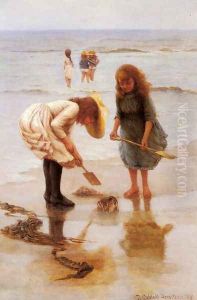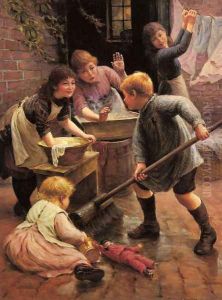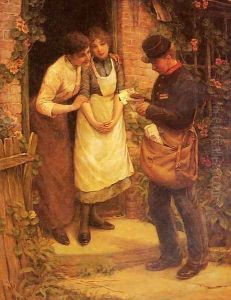Thomas Liddall Armitage Paintings
Thomas Liddall Armitage was an influential figure in the history of education for the blind, rather than a traditional artist in the visual or performing arts. Born in 1824, he was a British physician and philanthropist who made significant contributions to improving the lives of visually impaired individuals.
Armitage was educated at King's College London and later at the University of Paris, where he earned his medical degree. He practiced medicine in Paris before returning to England. Despite a successful medical career, his enduring legacy stems from his tireless work in the field of education and support for the blind.
Armitage was one of the key founders of the British and Foreign Society for Improving the Embossed Literature of the Blind, which later became the Royal National Institute of Blind People (RNIB), one of the United Kingdom's leading sight loss charities. Established in 1868, the RNIB has played a crucial role in providing services, support, and advocacy for blind and partially sighted people.
Moreover, Armitage was instrumental in the development and promotion of Braille in the United Kingdom. He recognized the superiority of the Braille system over other contemporary tactile reading systems and advocated for its adoption. His advocacy was a significant factor in the widespread acceptance of Braille, which has since become the standard for blind literacy worldwide.
Armitage's work extended beyond the borders of the UK. He was involved in international efforts to standardize Braille and improve the quality of life for blind individuals globally. His dedication to the cause of blindness prevention and treatment was also profound, as he sought to address the root causes of visual impairment through medical and charitable work.
Thomas Armitage passed away in 1890, but his legacy lives on through the RNIB and the countless individuals who have benefited from his pioneering efforts in the field of blind education and support services. His work has had a lasting impact on the lives of visually impaired people, and he is remembered as a champion of their rights and wellbeing.


